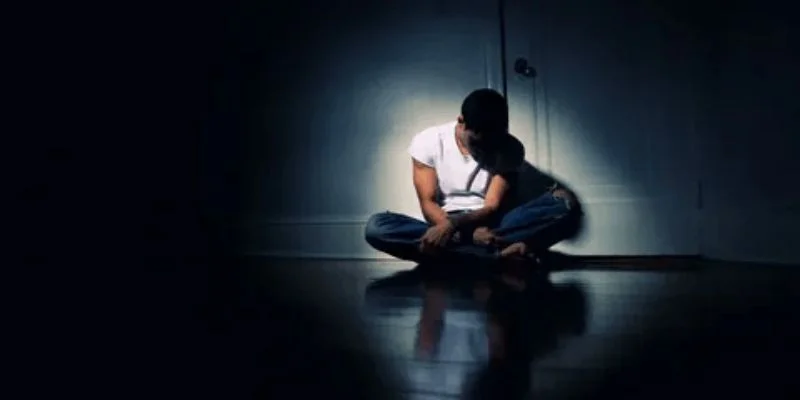Every year, about 6 million men suffer from depression in silence. This is probably due to a variety of factors, such as ignoring symptoms and indicators and delaying getting assistance. However, a contributing factor to the problem is the ignorance of men’s depressive symptoms.
Men that experience depression don’t appear the same as women do. This is one of the reasons it can be harder to recognize the symptoms of depression in men. Being aware of the symptoms to look out for is essential for prompt intervention and early detection.
Let’s examine in more detail the 12 warning indicators that are more frequently linked to depression in men.
1. Immediate irritation, annoyance, or uncalled-for fury
Thirty to forty percent of those who suffer from depression occasionally lose their temper. Many males might not fit the stereotypically bleak and depressing image of sadness. Rather, they might exhibit outbursts of rage. To help manage these emotions, some individuals find that regular visits to a Massage Center in Chennai can be beneficial in alleviating stress and promoting relaxation.
2. Hopelessness or a sense of emptiness
A chronically negative attitude about life can result from depression, whether or not there is a clear cause for it. Men with persistent depression may not experience overpowering sadness; instead, they may appear to be unmotivated. Alternatively, it could seem like a recurring pessimistic outlook.
3. Sleeping too little or too much
Sleep difficulties can be a result of depression in men. There are various ways to do this. It might seem as follows:
- Having problems settling down to sleep
- Having sleep disruptions regularly
- Having frequent nighttime awakenings Sleeping for extended periods without feeling rested
In men, these are frequently the classic symptoms of depression. It’s crucial to remember that insomnia raises the chance of suicide as well.
4. Lack of vigor and focus
Ninety percent of depressed individuals experience extreme exhaustion. Most likely, this is the outcome of inadequate sleep. Fatigue can cause low energy and easily distracted behavior, disrupting your personal and professional lives. And this may contribute to the depressive spiral.
5. Disinterest
A decrease in motivation, a decreased desire to engage in enjoyable activities, and a reduction in spending time with close relationships are indicators of depression.
If you distance yourself from people and activities, it could be easier to pretend everything is well for a while. However, loneliness can be detrimental to one’s mental well-being. Additionally, it raises the possibility of dying young.
6. Dangerous habits, such as using drugs or alcohol for self-medication
Men may resort to self-destructive conduct to numb sensations that are difficult to talk about or too painful to face. A man experiencing depression may exhibit the following behavioral changes:
- Overindulging in alcohol consumption
- Drug experimentation
- operating a vehicle carelessly
Sometimes people act in these ways to cover up the true, underlying despair.
7. Escape-oriented conduct
Men may utilize vices like excessive work or exercise to numb their emotions and the reality of their situation. Ignoring depression, however, won’t make it go away. In actuality, denying the existence of depression will probably make things worse.
8. Aggressive, violent, or dominating actions
Some people think it’s socially acceptable for men to maintain emotional and environmental control. However, their attempt to maintain composure sometimes comes across as aggressive rather than depressed. This combative look may conceal underlying melancholy. Furthermore, this may make it more difficult to diagnose the behavior as a depressive sign.
9. Physical Symptoms
Men can find it more difficult to talk about their emotional problems than to talk about the physical signs of depression in men. They can attempt to rationalize away their depressed state by emphasizing typical bodily manifestations of depression. Among them are:
- Headaches
- tightness in the chest
- pounding heart
- digestive problems
- Physical discomfort
10. A shift in weight
An alteration in appetite may result from depression treatment. Your weight may fluctuate if you find yourself eating more or less than normal. Further investigation is necessary to completely comprehend why this occurs. However, depression may have an impact on brain regions related to appetite. And this could result in a shift in appetite linked to depression.
11. Thoughts of suicide
Men in the US experience depression at a rate that is half that of women. Men commit suicide four times more frequently than women do. Threats or recurring suicide ideas should not be disregarded. These are indicators that the stress of trying to conceal depressive symptoms has gotten too much to handle. Seeking assistance as soon as possible is crucial.
What distinguishes depression in women from depression in men?
Men and women experience depression in somewhat different ways. For instance, women experience depression at a rate twice that of males. The reasons behind this discrepancy are the subject of various theories.
There are gender differences in the symptoms of depression in men and women. Depression in women is frequently accompanied by melancholy and crying. Symptoms in men can vary greatly. Men may, for instance, occasionally feel irritation or hostility instead of melancholy. Because of these disparities in symptoms, depression is therefore harder to identify in men.
Men may find it more difficult to identify and seek treatment for depression as a result of these differences. Furthermore, it can make it more difficult for medical practitioners to identify the mild symptoms of depression in men.
Male depression risk factors
Depression is a multifaceted illness. And for a variety of reasons, some men are more likely than others to experience depression. Among these risk factors are:
- Depression in oneself or one’s family history: It’s unclear exactly what the genetics are. However, depression is more prevalent in close family members.
- Illness: Depression symptoms can arise from chronic medical conditions such as diabetes, cancer, and heart disease.
- Medication: Depression is listed as a possible side effect for more than one-third of persons who take drugs.
- Traumatic occurrences Over time, going through traumatic experiences might cause sadness. Male depression may be more strongly predicted by stressful life experiences than by female sadness.
- Maltreatment as a child: The long-term psychological effects of maltreatment can increase your susceptibility to depression.
In summary
Stereotypes based on gender pose challenges to diagnosing depression in men. They may make it more difficult to identify potential depressive symptoms in men. Early identification and treatment of depression in men can be facilitated by understanding the signs and symptoms of the condition.
Recall that depression is a sickness, not a sign of weakness. Additionally, there are efficient treatments accessible to help you heal happily and healthily. See your health conscious provider if you’re worried about depression symptoms so you can get advice and figure out what to do next.



